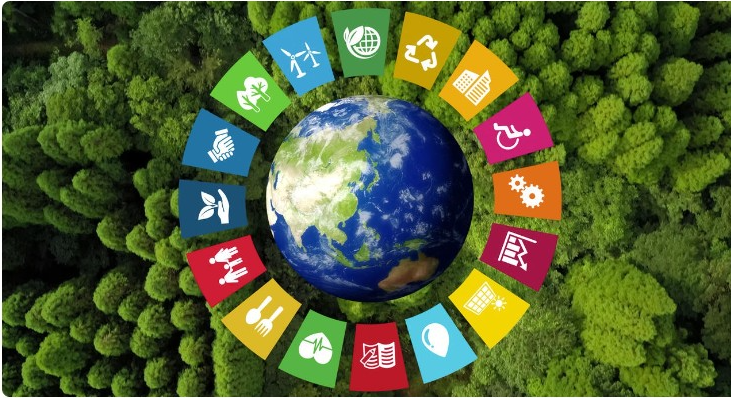Table of Contents
In today’s fast-paced world, the ability to sift through information quickly and accurately has become essential. Whether you’re working with large amounts of data, managing your daily intake of news, or even selecting the best products, being able to filter fast is the key to staying on top of things. This concept has become a guiding principle in numerous industries, from technology to personal productivity. Here, we’ll explore the significance of filtering fast and how it impacts different aspects of modern life.
What Does It Mean to Filter Fast?
“Filtering fast” refers to the ability to quickly eliminate irrelevant information, choices, or options to focus on what is most important or relevant. It can apply to everything from online search engines that sort through millions of results in a split second to business decision-makers who must choose the best options among many.
In the digital age, information overload is a real challenge. With so much content and data being produced every second, filtering efficiently can help avoid wasting time on irrelevant distractions. For businesses and individuals alike, mastering the art of filtering fast is essential for maintaining productivity.
Why Filtering Fast is Crucial in Modern Times

The rapid speed at which information flows today, coupled with the sheer volume of data available, means that the ability to process and filter data fast is no longer a luxury but a necessity. Here are some reasons why this skill is so vital:
- Efficiency: Whether you’re browsing the web or managing tasks at work, filtering fast ensures you focus only on what’s relevant. This skill can save hours of wasted time, which translates to increased efficiency in both personal and professional life.
- Improved Decision-Making: In industries like finance, marketing, and technology, quick and accurate filtering of information is critical. Business leaders often rely on data-driven insights to make decisions. Without efficient filtering processes, valuable time and opportunities can be lost.
- Staying Competitive: Companies that can effectively filter through data, trends, and customer feedback faster than their competitors often have a significant advantage. The ability to process large amounts of data efficiently is essential for staying relevant and ahead in today’s competitive markets.
Applications of Fast Filtering
The concept of filtering fast is used in various industries, technologies, and aspects of daily life. Below are some key areas where it plays a pivotal role:
Search Engines and Online Filters
Search engines like Google are prime examples of fast filtering at work. When you type a query into the search bar, the engine instantly sifts through billions of web pages, using algorithms to rank them based on relevance. The same principle applies to e-commerce sites that allow users to filter products based on price, brand, color, and more, helping customers quickly find what they need.
With advanced AI algorithms, search engines are continuously improving their filtering methods to provide users with the most relevant results in the shortest time possible.
Social Media Algorithms
Social media platforms like Facebook, Instagram, and TikTok also rely heavily on filtering content. Their algorithms analyze user behaviors, interests, and past interactions to present the most engaging content. Without these algorithms, users would be overwhelmed with irrelevant posts. Thus, these platforms filter content in milliseconds, offering a personalized experience.
This fast filtering process ensures that users see the most pertinent and engaging content, helping them stay connected to their interests without getting lost in the noise of an overwhelming feed.
Business and Data Analytics
Businesses today have access to unprecedented amounts of data. However, not all data is useful or relevant to their specific goals. That’s where fast filtering comes into play. Companies utilize data analytics tools to sift through vast quantities of information, enabling them to gain valuable insights that inform strategic decisions.
By filtering through massive datasets efficiently, companies can react faster to market changes, customer needs, and emerging trends, ensuring they remain competitive and agile in an ever-evolving landscape.
Email and Communication Filters
Another common application of fast filtering is in communication tools like email. With the volume of messages professionals receive daily, being able to automatically filter spam, organize inboxes, and prioritize important emails is crucial for maintaining productivity. Tools like Gmail and Outlook offer filters that help users categorize and respond to messages quickly, ensuring no critical communication slips through the cracks.
How to Master the Art of Filtering Fast

Mastering the skill of filtering fast can improve your efficiency, whether in personal life, work, or even digital experiences. Here are a few strategies that can help:
Leverage Technology
Use tools like search filters, email sorting, and productivity apps to streamline tasks. Automation and artificial intelligence (AI) have made it easier than ever to filter out unnecessary information and focus on what matters. For instance, AI-powered apps can help users quickly sort through emails, prioritize tasks, and manage schedules.
Adopt a Minimalist Approach
Adopting a minimalist approach to information consumption and decision-making can help you naturally filter out distractions. By narrowing down your focus to only the most important and relevant items, you can avoid getting overwhelmed by excessive data or choices. Minimalism in decision-making encourages you to prioritize only what adds value.
Develop Critical Thinking Skills
Critical thinking is an essential component of filtering fast. It involves analyzing information, identifying biases, and making informed decisions quickly. By improving your critical thinking skills, you can more easily identify the most important information and discard the rest.
Stay Organized
A well-organized system of tasks, files, and information will naturally help you filter fast. By maintaining a clear structure in your work, digital life, and even home organization, you can quickly eliminate unnecessary clutter and focus on what matters.
Challenges of Filtering Fast
While filtering fast has its clear benefits, it also presents some challenges:
- Overlooking Important Information: In some cases, filtering too quickly can result in overlooking critical details. For instance, in the fast-paced world of journalism, a reporter who filters too quickly through sources might miss an important angle of the story. Balancing speed with accuracy is key to effective filtering.
- Burnout: Constantly needing to process and filter large amounts of information can lead to mental exhaustion and burnout. It’s important to implement rest and mental breaks when practicing fast filtering in your work or personal life.
- Information Biases: Algorithms designed to filter fast, such as those used by social media platforms, may reinforce biases by showing users only the content that aligns with their previous behaviors and preferences. This can create echo chambers where diverse perspectives are filtered out.
The Future of Fast Filtering
As technology continues to advance, fast filtering will become even more integral to everyday life. Artificial intelligence (AI), machine learning, and big data analytics are already transforming how we filter information, and these technologies will only grow more sophisticated. Soon, we can expect even more personalized, efficient, and intelligent filters to assist with everything from online shopping to professional decision-making.
Fast filtering will likely play a significant role in the continued evolution of the Internet of Things (IoT), where vast networks of connected devices will need to quickly process and respond to data.
Conclusion
In the modern world, the ability to filter fast has become an invaluable skill. Whether you’re searching for information online, making decisions in a fast-paced work environment, or simply trying to stay organized in your personal life, mastering this skill is key to staying efficient, competitive, and informed. While fast filtering comes with challenges, embracing technology, staying organized, and developing critical thinking skills can help ensure that you remain on top of the information flow without getting overwhelmed.
For More Information Please Visit These Websites Xewe And Viprow


